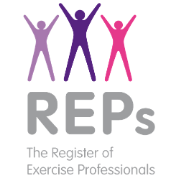Overview of the Three Trimesters
First Trimester (weeks 1 – 12)
This is a very exciting time, but you will likely be suffering from some of the following complaints: nausea, breast tenderness, tiredness and feeling emotional.
Due to the production of the hormone relaxin, you may experience joint instability, and progesterone may make you constipated, so it is important to keep well hydrated and increase your fibre intake.
Exercise considerations
You don’t need to make any dramatic changes or modifications to your exercise programme if you are currently training, but the first 3 months are crucial for foetal development. Be aware of overheating, and excessive production of lactic acid, which can have severe adverse effects on this development. It is important to reduce exercise intensity and focus on the correct technique.
Your heart rate will be elevated when exercising in early pregnancy, as a result of a deficiency in blood volume and corresponding low blood pressure. Most aspects of respiratory function are actually improved during pregnancy.
Insulin
1 in 300 women will develop diabetes mellitus (also known as gestational diabetes) at some point in their pregnancy. Insulin resistance increases during pregnancy, making the woman’s pattern of energy similar to that of a mild diabetic. During mid to late pregnancy, more fat is utilised to supply maternal energy leaving more carbohydrate available for the foetus and placenta.
Second Trimester (weeks 13 – 28)
As the placenta begins to take over the role of maintaining the pregnancy, you may start to feel better and have more energy.
As your baby continues to grow, you will notice a change in your centre of gravity, which will affect your posture and balance.
Exercise Considerations
If you have stopped training in the first trimester, then your return to exercise must be gentle and cautious. High impact activities and combat sports should be avoided, and again a focus on proper technique is crucial.
Continued hormonal influence affects joint instability and cardiorespiratory systems.
Third Trimester (weeks 29 – 40)
You will be aware of the increased size and weight of your growing baby and will experience further changes in the centre of gravity and balance. The pressure of your uterus will increase on your bladder, and you may well feel tired and have general aches and pains. Feelings of breathlessness are a result of the diaphragm being pushed up.
Exercise considerations
It is important to listen to your body and optimise rest and regeneration.
Lower the intensity, and prioritise pelvic mobility and birth preparation exercises. Try to move daily, preferably outdoors, and prepare your body’s tissues and systems with appropriate nutrition and hydration. It is during the last month of pregnancy that babies start to receive their microbiome from the mother, so ensuring you have a healthy gut and vaginal flora is extremely important in setting up the baby’s colonisation and immune system.



